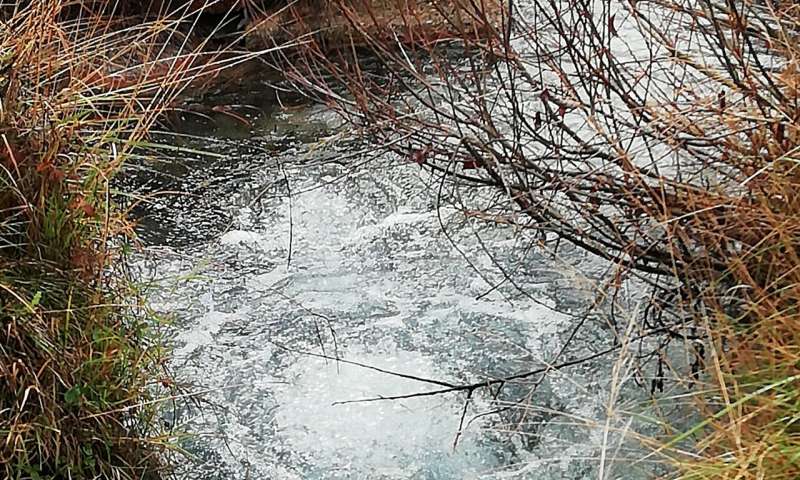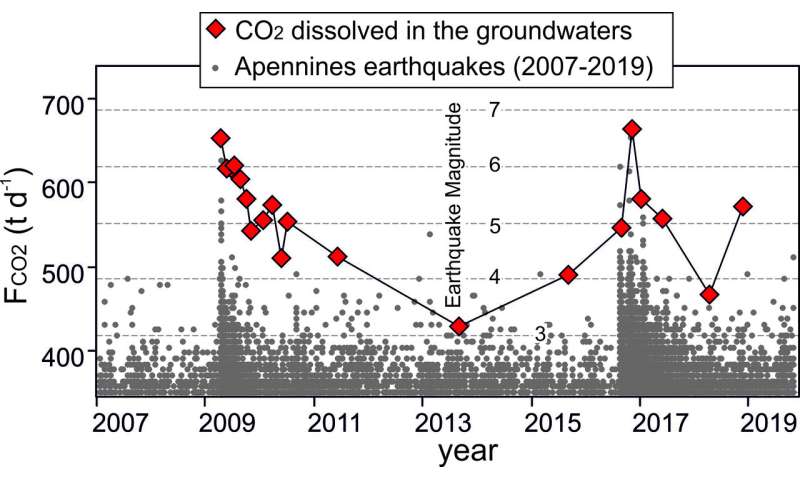#Increase in release of underground CO2 emissions in Italy tied to earthquakes
“#Increase in release of underground CO2 emissions in Italy tied to earthquakes”

A team of researchers affiliated with several institutions in Italy has found a possible link between increases in CO2 emissions from groundwater and earthquake occurrences in Italy’s Apennine Mountains. In their paper published in the journal Science Advances, the group describes their decade-long study of CO2 emissions in the area and what they learned about them.
Prior research has shown that carbon dioxide in the air can become trapped in rocks—the resulting rocks are known as carbonates.Additionally, the carbon dioxide in those rocks can be released by heat from within the Earth and other tectonic forces. When the carbon is released, it tends to be sequestered in pockets belowground or in underground reservoirs. Carbon that makes its way into such reservoirs quite often ends up in the nearby water table, and can rise to the surface via springs. In this new effort, the researchers studied fluctuations in the amount of carbon dioxide being released from spring water at several sites in the Apennine Mountains near the site of the 2009 L’Aquila earthquake. They did so by collecting samples over the years 2009 to 2018.
As part of their study of the samples they collected, the researchers also looked at seismic data, which, in addition to normal seismic events, also showed occurrences of several small earthquakes. They found that levels of CO2 emissions from spring water in the area rose when there were earthquakes and then dropped again after the quakes were over. More specifically, they found that when quakes of magnitude 6 or higher struck, CO2 emission levels rose to an average of 600 metric tons per day. During quiet periods, CO2 emissions in the same area were typically between 400 and 500 metric tons per day.
The researchers suggest that pressure created by increases in CO2 gas underground might be the factor setting off the earthquakes. They further suggest that if CO2 does set off some earthquakes, measuring it might be a way of predicting some of them. They also note that their findings highlight a source of carbon emissions into the atmosphere that needs to be added to global warming models.
 If you want to read more Like this articles, you can visit our Science category.
If you want to read more Like this articles, you can visit our Science category.
if you want to watch Movies or Tv Shows go to Dizi.BuradaBiliyorum.Com for forums sites go to Forum.BuradaBiliyorum.Com